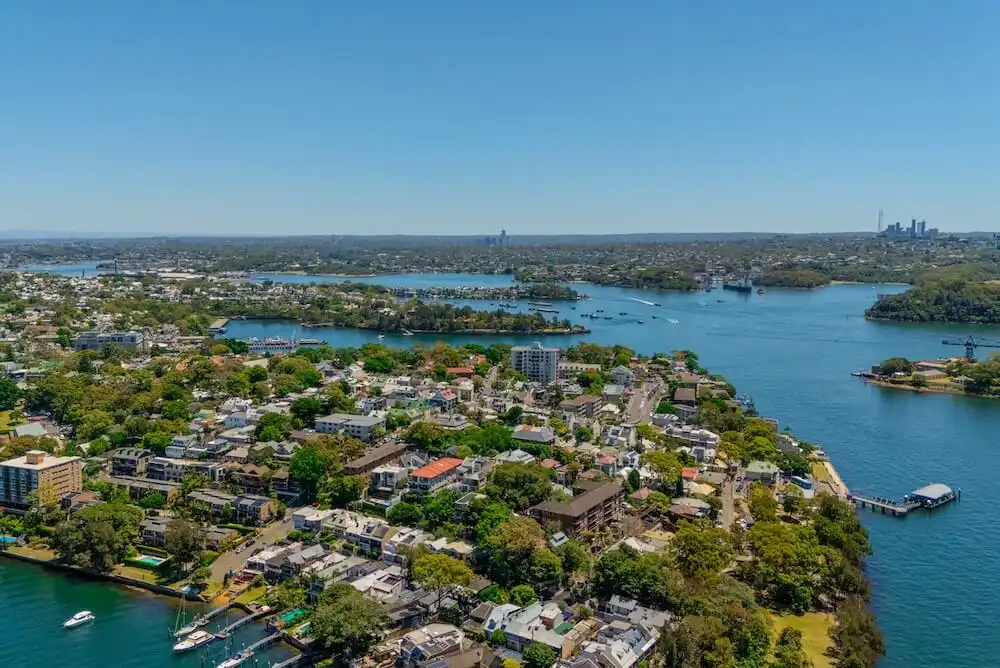2023 Australian property market outlook - what's in store?
It's been a turbulent year for Australian property as interest rates have surged from near-zero levels, catching many by surprise, but the downturn looks to be levelling off.
The path that interest rates take will be a defining factor of the 2023 market, and there are plenty of opinions out there ranging from predictably pessimistic to surprisingly optimistic.
So what are the experts saying about where we go from here?
When will interest rates peak?
The point at which the Reserve Bank stops hiking rates will have a big impact on how the property market behaves next year, so it's an important question to ask.
Currently, the RBA has the cash rate set at 3.10 per cent, with the last three consecutive hikes notching up just +0.25 per cent after five months of +0.50 per cent increases.
Inflation has proved challenging to get on top of, but the downshift in rate hiking speed suggests we may well be very close to interest rates hitting their peak.
| Bank | Peak cash rate | Month of peak |
|---|---|---|
| CBA | 3.10% | December 2022 |
| NAB | 3.60% | March 2023 |
| Westpac | 3.85% | May 2023 |
| ANZ | 3.85% | May 2023 |
According to the Commonwealth Bank's forecasts, December's increase was the final one for the cycle, suggesting that our current 3.10 per cent rate is the ceiling.
NAB expects a further +0.5 per cent bump to bring things to 3.60 per cent by March 2023.
Westpac and ANZ, meanwhile, think we'll see rates peak at 3.85 per cent by May next year.
It's a wide range of predictions, and there's even more diversity in the banks' thoughts around if and when rates will start being reduced.
CBA is expecting a significant rewind to 2.60 per cent by the end of next year, Westpac foresees things dipping back to 2.85 per cent, while NAB and ANZ align around the 3.50 per cent range.
It's anyone's guess if any of the banks will be right, but the level at which rates top out, and then the point at which they begin to subside, will play a big part in how property prices perform.
The big banks have a conservative outlook on prices
When it comes to property price forecasts, the big four banks make a lot of noise.
At this stage, all four remain relatively pessimistic about the year to come, suggesting that the impacts of the elevated interest rate environment will be significant.
| Bank | 2023 price forecast (national) |
|---|---|
| CBA | -8.0% |
| NAB | -11.4% |
| Westpac | -8.0% |
| ANZ | -9.0% |
Westpac and CBA sit on the lower end of the scale, saying we can expect the median Australian house price to drop by another -8.0 per cent in 2023.
ANZ goes a touch further, forecasting -9.0 per cent price falls for the year.
NAB's latest findings suggest that a further -11.4 per cent could be taken out of home values across the capital cities.
It's worth noting, though, that the big banks are notoriously conservative in their forecasts, and their outlook isn't shared by everyone.
Other experts have a different view of 2023
There are alternative outlets that offer more detail in their predictions and provide a bit more margin for error.
SQM Research's annual Housing Boom and Bust Report takes a nuanced approach to property market forecasting, and this year's is decidedly more optimistic than the banks.
The 2022 report, which looks at the year ahead, proposes four possible outcomes depending on factors like interest rates, inflation and unemployment.

Their 'base case' scenario, which they predict is the most likely, plots a course where interest rates stay below a 4 per cent ceiling and inflation is slowly driven down throughout the year.
If that happens, SQM says, capital cities could be looking at between +3 and +7 per cent growth in 2023, with Sydney and Perth leading the charge.
A best-case scenario that includes rate cuts later in the year would see even stronger growth across the capitals, while the most pessimistic outlook would only involve relatively minor price falls.
SQM's managing director Louis Christopher told ABC News that the ongoing shortage of listings shows that homeowners are coping with rate hikes, and that there is underlying strength in the market.
"One of the key reasons why I was not more negative for the outlook on housing for 2023 was because stock listings have remained relatively stable. There is nothing in today’s numbers which change my mind on that," he said.
What else will factor in to 2023 home prices?
Economic factors are a big part of what drives the property market, but they're not the only influence on how things proceed.
Consumer sentiment is also a major driver, and after a year of persistent negativity, BuyersBuyers co-founder Pete Wargent said things are beginning to skew more positively.
"There’s no question that the series of interest rate hikes knocked the stuffing out of the housing market earlier in 2022," he said.
The downshift to 0.25 per cent rate rises has had a "soothing impact" on buyer confidence, providing some assurance that the peak of the hiking cycle is approaching.
"After months of gloomy headlines, eventually consumers tend to tire of hearing the same old messages and move on, particularly in the absence of a major property price correction, and a lot of buyers are doing just that now."
Ultimately, Mr Wargent said, we have passed through the "peak fear" phase, and calmer waters are ahead.
"That, combined with improved auction clearance rates, indicate that the market is more balanced, especially when it comes to high-quality properties in popular areas."
Thinking of selling in 2023?
Ultimately, timing the property market is a bit of a fool's errand. As we've learned from the past few years, there's always the chance of something unexpected throwing things off course.
Even if the market feels uncertain, it’s important to remember that it’s all relative and the market doesn’t stop. There will always be properties being listed and buyers out there wanting to purchase a home.
It's also crucial to recognise that conditions will vary from suburb to suburb, so it’s important to understand your own local market — and to do that, you really need to get granular.
Whether your property is impacted by price gains or falls depends on many factors including location, property type, and whether your home falls into the higher or lower end of the market.
If you’re seriously considering selling your home, you need to do your research. As a first step, get a ball-park estimate of what your home might be worth by using a free online estimation tool.
Speaking to a top local agent is also one of the best ways to get a thorough understanding of how buyers are behaving in your suburb, what kinds of results are still being achieved, and what the best strategy could be for you to still get that dream sale result.
1. RateCity, 'How high will rates go? Here's what experts think about the RBA cash rate', 1 December 2022
https://www.ratecity.com.au/home-loans/mortgage-news/high-will-rates-go-here-experts-think-rba-cash-rate
2. SQM Research, 'Christopher's Housing Boom And Bust Report 2023', 29 November 2022
https://sqmresearch.com.au/boombustreport.php
3. ABC News, 'Will house prices go up in 2023? The answer largely depends on interest rates', 29 November 2022,
https://www.abc.net.au/news/2022-11-29/house-prices-to-rise-if-conditions-favourable/101705690
4. BuyersBuyers, 'Housing market passes "peak fear" phase', 10 October 2022
https://buyersbuyers.com.au/articles/housing-market-passes-peak-fear-phase






